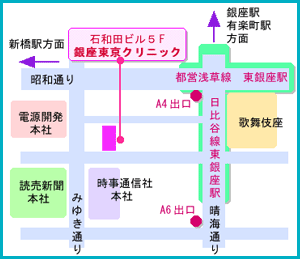カンナビジオールの最近のブログ記事
カンナビジオールはトリプル・ネガティブ乳がんの増殖・転移を抑制する
カンナビジオールはトリプル・ネガティブ乳がんの増殖・転移を抑制する
Modulation of the tumor microenvironment and
inhibition of EGF/EGFR pathway: Novel anti‐tumor
mechanisms of Cannabidiol in breast cancer(腫瘍の微小環境の制御とEGF/EGFR経路の阻害:乳がんに対するカンナビジオールの新規の抗腫瘍効果のメカニズム)Mol Oncol. 2015 Apr; 9(4): 906-919.
【要旨】
精神作用のないカンナビノイドの一種であるカンナビジオールの抗腫瘍効果に関しては十分に検討されておらず、特にトリプルネガティブ乳がんに対する作用についてはほとんど検討されていない。
この研究では、トリプルネガティブ乳がん細胞を含めて高度に悪性度の高い乳がん細胞株を用いて、カンナビジオールの抗腫瘍活性を検討した。
我々はこの研究で初めて、乳がん細胞における上皮成長因子(EGF)誘導性の増殖と移動をカンナビジオールが有意に阻害することを明らかにした。
カンナビジオールは、EGFRとERKとAKTとNF-κBシグナル伝達系のEGF誘導性の活性化を阻害し、MMP2とMMP9のEGF誘導性の分泌を阻害した。
さらに、マウスを使った複数の実験系で、カンナビジオールは腫瘍の増大と転移を阻害した。
分子メカニズムの解析の結果、カンナビジオールは原発巣と肺転移巣における腫瘍関連マクロファージの集積を有意に阻害した。
培養細胞を使ったin
vitroの実験では、培養がん細胞にカンナビジオールを投与した使用後の培養液はマクロファージ細胞RAW264.7細胞の移動を抑制した。
カンナビジオール投与培養がん細胞の使用後の培養液は、マクロファージの集積と活性化に重要なサイトカインのGM-CSFとCCL3の濃度の低下を認めた。
以上の結果より、カンナビジオールはEGF/EGFRシグナル伝達系の阻害と腫瘍微小環境の制御という新規なメカニズムによって乳がん細胞の増殖と転移を阻害することを初めて明らかにした。
これらの結果は、治療法が限られ、予後が不良なトリプル・ネガティブ乳がんを含めて、悪性度の高い乳がんサブタイプの増殖と転移を阻止する新規の治療法としてカンナビジオールが使用できる可能性を示している。
カンナビジオールの抗がん作用については以下のサイトをご参照下さい。
http://www.f-gtc.or.jp/cannabidiol/CBDoil.html
【原文】
Mol Oncol. 2015 Apr; 9(4): 906-919.
Modulation
of the tumor microenvironment and inhibition of EGF/EGFR pathway: Novel anti‐tumor mechanisms of Cannabidiol in breast cancer
Abstract
The
anti‐tumor role and mechanisms
of Cannabidiol (CBD), a non‐psychotropic
cannabinoid compound, are not well studied especially in triple‐negative breast cancer (TNBC). In the present study, we
analyzed CBD's anti‐tumorigenic activity
against highly aggressive breast cancer cell lines including TNBC subtype. We
show here ‐for the first time‐that CBD significantly inhibits epidermal growth factor
(EGF)‐induced proliferation and
chemotaxis of breast cancer cells. Further studies revealed that CBD inhibits
EGF‐induced activation of EGFR,
ERK, AKT and NF‐kB signaling
pathways as well as MMP2 and MMP9 secretion. In addition, we demonstrated that
CBD inhibits tumor growth and metastasis in different mouse model systems.
Analysis of molecular mechanisms revealed that CBD significantly inhibits the
recruitment of tumor‐associated
macrophages in primary tumor stroma and secondary lung metastases. Similarly,
our in vitro studies showed a significant reduction in the number of
migrated RAW 264.7 cells towards the conditioned medium of CBD‐treated cancer cells. The conditioned medium of CBD‐treated cancer cells also showed lower levels of GM‐CSF and CCL3 cytokines which are important for macrophage
recruitment and activation. In summary, our study shows ‐for the first time‐that CBD inhibits breast cancer growth and metastasis through novel
mechanisms by inhibiting EGF/EGFR signaling and modulating the tumor
microenvironment. These results also indicate that CBD can be used as a novel
therapeutic option to inhibit growth and metastasis of highly aggressive breast
cancer subtypes including TNBC, which currently have limited therapeutic
options and are associated with poor prognosis and low survival rates.
カンナビジオールはドキソルビシン誘発性心筋障害を防ぐ
カンナビジオールはドキソルビシン誘発性心筋障害を防ぐ
Cannabidiol Protects against Doxorubicin-Induced Cardiomyopathy by Modulating Mitochondrial Function and Biogenesis(カンナビジオールはミトコンドリアの機能と新生を制御することによってドキソルビシン誘発性心筋障害を防ぐ)Mol Med. 2015; 21(1): 38-45.
【要旨】
ドキソルビシンは広く使用されている抗腫瘍活性の高い抗がん剤であるが、その用量依存的な心臓毒性によって臨床使用に限界がある。
ドキソルビシンの心臓毒性には活性酸素や一酸化窒素による酸化ストレスの亢進や、心筋細胞や血管内皮細胞のミトコンドリア機能の障害や細胞死が関与している。
カンナビジオールは大麻に含まれる精神活性を持たない成分であり、有害作用は少なく、抗酸化作用や抗炎症作用を有し、さらに最近は抗腫瘍活性も報告されている。ドキソルビシン誘発性の心筋障害のマウスの実験モデルを用いて、カンナビジオールの効果を検討した。
ドキソルビシン誘発性心筋障害は心筋細胞のダメージのレベル(血清中のクレアチニンキナーゼと乳酸脱水素酵素の値)、活性酸素や一酸化窒素による細胞傷害のレベル(細胞内のグルタチオン量、グルタチオンペルオキシダーゼ1活性、脂質過酸化、3-ニトロチロシン形成、誘導性一酸化窒素合成酵素mRNAレベル)、心筋細胞死(アポトーシス、ポリADPリボースポリメラーゼ1依存性)、心筋機能(心拍出機能と左室内径短縮率)で評価した。
ドキソルビシンはミトコンドリア新生を抑制し、ミトコンドリア機能を低下させ(呼吸酵素複合体IとIIの活性低下)、心筋細胞における脱共役たんぱく2と3(uncoupling
protein 2 and 3)とmedium-chain acyl-CoA dehydrogenase mRNAの発現を低下させた。
カンナビジオールの投与は、これらのドキソルビシン誘発性の心筋機能の障害を改善し、活性酸素や一酸化窒素による細胞ストレスと細胞死を軽減した。
カンナビジオールは障害されたミトコンドリア機能とミトコンドリア新生を改善した。
これらの実験結果は、ドキソルビシンによる心筋障害に対する新たな治療法をしてカンナビジオールの有用性を示唆しており、ミトコンドリアの機能や新生に対するカンナビジオールの作用は、他の多くの組織障害の実験モデルでのカンナビジオールの作用機序を説明できるかもしれない。
解説:
カンナビジオールは、活性酸素や一酸化窒素による傷害を軽減する作用、ミトコンドリアの機能や新生を亢進する作用、炎症や細胞死を軽減する作用などのメカニズムで、ドキソルビシン誘発性の心筋傷害や心不全を予防する効果が期待できるという報告です。
この論文では、マウスの実験でカンナビジオールは1日1回、10mg/kgを腹腔内投与しています。人間に換算すれば1〜2mg/kg程度ですが、口腔内からの吸収率を20%くらいに考えると、ヒトでの口腔内(舌下投与)の1日量は5〜10mg/kg程度が基準になると思います。
(動物の標準代謝量は体重の3/4乗(正確には0.751乗)に比例するという法則があり、一般にマウスの体重当たりのエネルギー消費量や薬物の代謝速度は人間の約7倍と言われています。)
他の論文で、カンナビジオールはシスプラチンによる腎臓障害を軽減することが報告されています。さらに、多くのがん細胞に対して抗腫瘍活性を発揮することが報告されています。
カンナビジオールの安全性は極めて高いので、抗がん剤治療の副作用軽減と抗腫瘍効果増強にカンナビジオールの併用は有効だと言えます。
カンナビジオールの詳細は以下のサイトをご参照下さい。
http://www.f-gtc.or.jp/cannabidiol/CBDoil.html
【原文】
Mol Med. 2015 Jan 6;21:38-45. doi:
10.2119/molmed.2014.00261.
Cannabidiol
Protects against Doxorubicin-Induced Cardiomyopathy by Modulating Mitochondrial
Function and Biogenesis.
Hao E1,2, Mukhopadhyay P1, Cao Z1, Erdélyi K1, Holovac E1, Liaudet L3, Lee WS1,4, Haskó G5, Mechoulam R6, Pacher P1.
Abstract
Doxorubicin (DOX) is a widely used, potent chemotherapeutic agent; however, its clinical application is limited because of its dose-dependent cardiotoxicity. DOX's cardiotoxicity involves increased oxidative/nitrative stress, impaired mitochondrial function in cardiomyocytes/endothelial cells and cell death. Cannabidiol (CBD) is a nonpsychotropic constituent of marijuana, which is well tolerated in humans, with antioxidant, antiinflammatory and recently discovered antitumor properties. We aimed to explore the effects of CBD in a well-established mouse model of DOX-induced cardiomyopathy. DOX-induced cardiomyopathy was characterized by increased myocardial injury (elevated serum creatine kinase and lactate dehydrogenase levels), myocardial oxidative and nitrative stress (decreased total glutathione content and glutathione peroxidase 1 activity, increased lipid peroxidation, 3-nitrotyrosine formation and expression of inducible nitric oxide synthase mRNA), myocardial cell death (apoptotic and poly[ADP]-ribose polymerase 1 [PARP]-dependent) and cardiac dysfunction (decline in ejection fraction and left ventricular fractional shortening). DOX also impaired myocardial mitochondrial biogenesis (decreased mitochondrial copy number, mRNA expression of peroxisome proliferator-activated receptor γ coactivator 1-alpha, peroxisome proliferator-activated receptor alpha, estrogen-related receptor alpha), reduced mitochondrial function (attenuated complex I and II activities) and decreased myocardial expression of uncoupling protein 2 and 3 and medium-chain acyl-CoA dehydrogenase mRNA. Treatment with CBD markedly improved DOX-induced cardiac dysfunction, oxidative/nitrative stress and cell death. CBD also enhanced the DOX-induced impaired cardiac mitochondrial function and biogenesis. These data suggest that CBD may represent a novel cardioprotective strategy against DOX-induced cardiotoxicity, and the above-described effects on mitochondrial function and biogenesis may contribute to its beneficial properties described in numerous other models of tissue injury.






